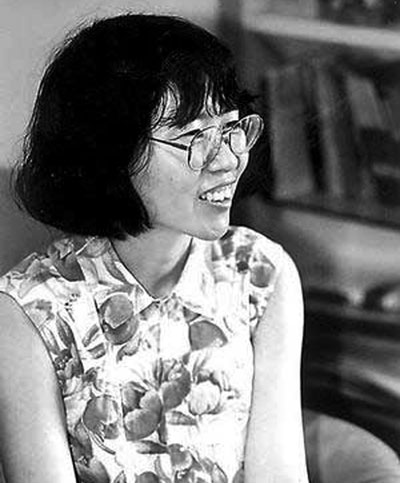
JUST when many Chinese writers feel stuck in deep-freeze after the recent incarnation of BookExpo America, Chinese avant-garde author Can Xue’s “The Last Lover” was announced as the best translated book at the expo May 27. Organized by Three Percent at the University of Rochester, the best translated book award (BTBA) is the only prize of its kind that honors the best original works of international literature and poetry published in the United States in the previous year. On the same day, Can Xue was nominated as one of the nine finalists for the Neustadt Prize for Literature in the United States. The Neustadt Prize is described as the most prestigious international literary award given in the United States, and is often called “America’s Novel” for its reputation as a lead-up to the Swedish Academy’s annual selection. Any living writer in the world, writing in any genre, is eligible for nomination. The results of this year’s Neustadt Prize will be announced in October, and Can Xue is the only writer who was nominated for both of these two top awards this year. Before the nominations, Can Xue was also nominated as a finalist for several independent awards in Europe. However, her rise in American and European literary circles does not help Can Xue’s recognition in the domestic market. For years, the avant-garde writer has been seen as an outlier in Chinese literary circles and has never won any major awards in China. Born in 1953 in Changsha, capital of Hunan Province, Can Xue was raised in a literary family and later became a self-taught writer. Regarded as one of the most experimental writers in the world by some literary scholars and readers, Can Xue describes her works as “soul literature” or “life literature.” She is the author of numerous short-story collections and four novels. First published in China in 2005, the English version of “The Last Lover” was published in the United States in 2014. “When it was firstly published in China 10 years ago, it only received two critiques; both were not very positive. However, more than 10,000 copies were sold, which means that it was enjoyed by many readers,” she said. The destiny of the book can be seen as a reflection of Can Xue’s literary career. “I think that a lot of critics were not able to fully understand my work at that time. My works were very superior and were written for today’s young people. Luckily, my works are well received among young readers nowadays,” she said. In Can Xue’s opinion, true literature should pursue the perfection of humanity with more and deeper spiritual meanings. Traditional Chinese literature, unlike Western literature, does not focus on this aspect. “Most traditional literary works, except for ‘A Dream of Red Mansions,’ only have some childlike spiritual pursuits. That’s why our literature has not made any progress until now,” she said. Can Xue believes that the height of literature is the height of humanity. To reach that height, a writer should start by exploring her own soul and spirit. “When your exploration reaches a certain level, you will reach the soul of humanity. For a writer, her works are her soul, and the size of her heart is determined by the depth of her exploration,” she said. “Many Chinese writers are very talented, but their lack of a critical spirit has pushed them into the hole of traditional literature.” Some writers still try hard to explore humanity. For example, Liang Xiaobin is one of the writers that Can Xue respects the most. “However, some writers eventually decide to give up the exploration and return to where they started, such as Wang Meng, Wang Anyi and Ge Fei,” Can Xue said. “Contemporary Chinese literature is now a dead end.” “The return of traditional literature is more commonly seen among young best-selling writers. I do not see any contemporary value and spirit in best-selling books nowadays. The younger generation is too lazy to think and explore. I do not have high hopes for the future of Chinese literature,” she said. For Can Xue, the only way up for contemporary Chinese literature is to learn from the Western literature. “We should learn their attention to and exploration of humanity,” she said. This may also be the reason why Can Xue’s works have gained such attention in international literary circles. “I learned their methods and used these methods in my experiments. And it is humanity that lights up my inspiration. So I think that this type of literature has the strongest power and can stand the test of time,” she said. At the age of 62, Can Xue is still a very productive writer, and her new book will be published in China in September. “I think that now is the best time for my writing. I have gained a wider vision of society and a deeper understanding of humanity. It makes my new book more readable,” she said. In addition to literature, Can Xue is also writing a philosophical work. “I have been studying Western philosophy for the last five years, and I always think that first-class literature is closely connected with philosophy,” she said. “Both Chinese philosophy and Western philosophy have their advantages and flaws. As a Chinese learning Western philosophy, I hope that I can add some unique contributions to my research.” (Wang Yuanyuan) | 
